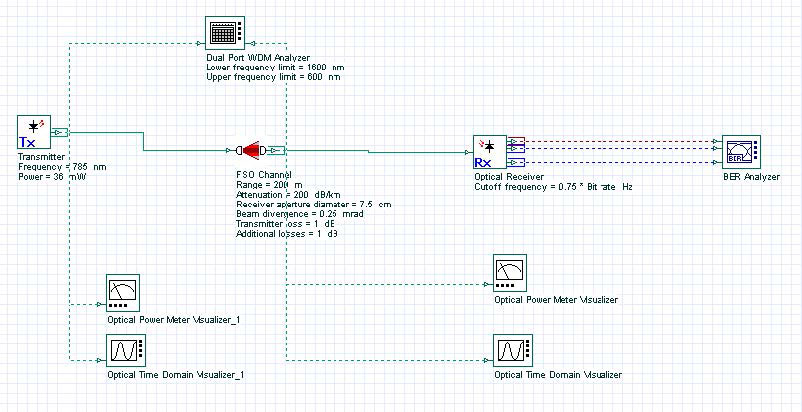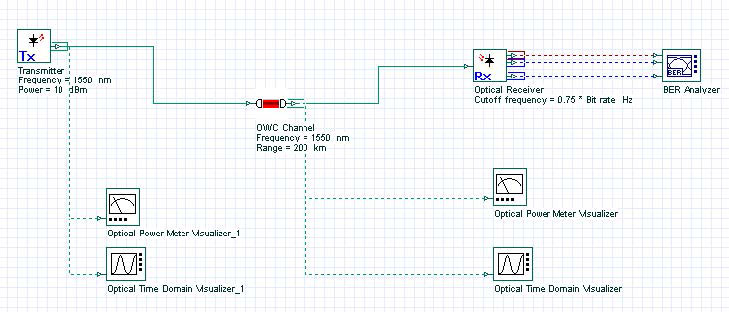Free Space Optics (FSO) communications [1] refers to the transmission of modulated visible or infrared beams through the atmosphere to obtain optical communications. FSO.osd (Figure 1) demonstrates a typical free space optical link operating at 1.25 GB/s, where usually the main source of penalty is the atmospheric attenuation.
Figure 1: FSO Link
The wireless optical channel component, that is also free-space optics, can be used for large distances where the atmospheric attenuation is not the major source of penalties, but the pointing angle is. e.g. satellite communications. WOC.osd (Figure 2) demonstrates the impaired link performance from pointing errors between the transmitter and receiver for satellite communications [2][3].
Figure 2: WOC Link
References
[1] S. Bloom, E. Korevaar, J. Schuster, H. Willebrand, ‘Understanding the performance of free- space optics’, Journal of Optical Networking. Vol. 2, No. 6, pp. 178-200, June 2003.
[2] A. Polishuk, S. Arnon, ‘Optimization of a laser satellite communication system with an optical preamplifier’, J. Optical Society of America. Vol. 21, No. 7, pp 1307-1315, July 2004..
[3] S. Arnon, ‘Performance of a laser satellite network with an optical preamplifier’, J. Optical
Society of America. Vol. 22, No. 4, pp 708-715, April 2005.



